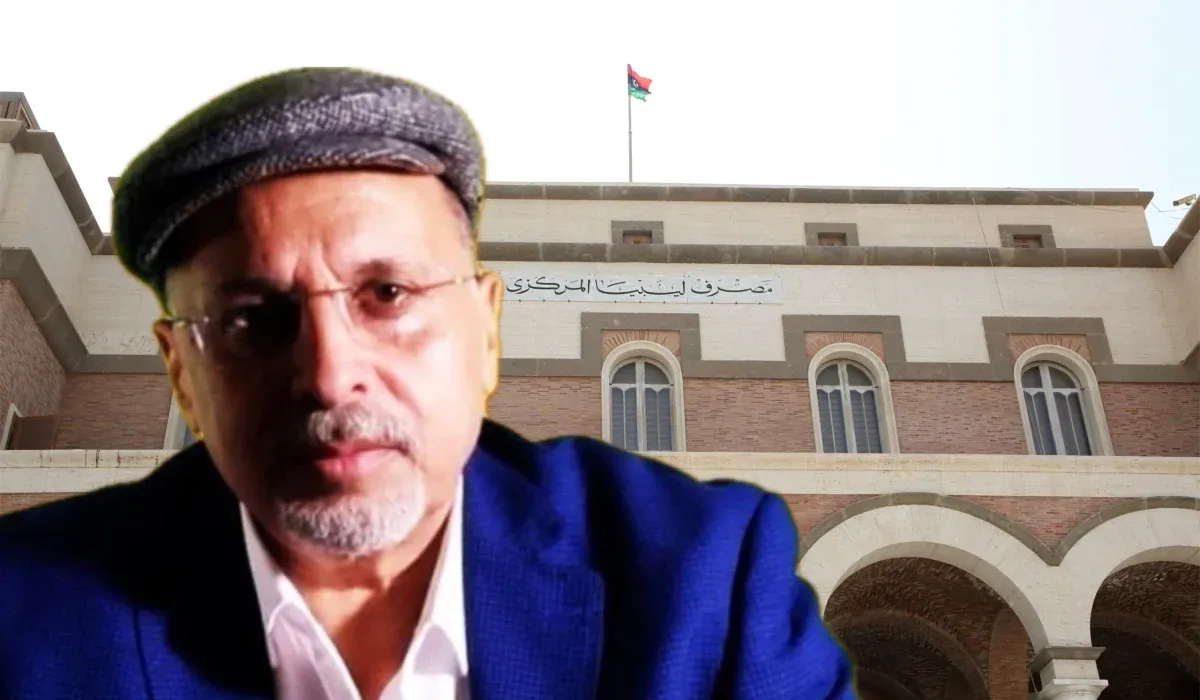Written by: Economic expert Mohamed Abu Snina.
The United States of America is considered one of the largest economies dependent on the outside world. When you walk through American markets, it is rare to find a product made in America—especially consumer goods such as clothing, shoes, furniture, jewelry, technological products, and alcoholic beverages. Instead, you find all types of imported products from various countries, including European Union states, Southeast Asian nations, Mexico, Canada, China, Japan, South Korea, Turkey, Middle Eastern countries, and even some Sub-Saharan African countries.
This means that the United States heavily relies on imports from abroad, and the trade balance is always not in its favor, even though the size of the American economy represents about 26% of the global economy. This situation is due to purely economic reasons.
Nonetheless, the United States surprised the world by imposing tariffs ranging from 10% to 50% on imports from over 200 countries.
The overall trade surplus of countries exporting to the United States—or in other words, the trade deficit of the U.S.—is due to the comparative advantages enjoyed by these countries, resulting from the low cost and high quality of their products and their lower production costs, including cheaper labor, compared to the cost of producing alternatives within the United States.
As of early 2025, the U.S. trade deficit had reached approximately $103.5 billion (not speaking of the cumulative deficit), which raised concerns within the American administration, as the size of the deficit had reached an unprecedented level.
It is noteworthy that, in practice, to offset the U.S. trade deficit, the U.S. Treasury prints and injects an equivalent amount of dollars into global markets ($103.5 billion during 2024) as repayment of its foreign debt resulting from the trade deficit with various countries. This has been the U.S. mechanism throughout history since the dollar became the world’s reserve currency—enabling the U.S. dollar to dominate the global economy.
In other words, the United States is always in a state of deficit in dealing with the outside world so that the dominance of the dollar over the global economy can continue. The U.S. imports various goods and products from around the world and, in return, prints dollars (not backed by anything) and pays them to other countries. This means that any measures taken by the U.S. to reduce imports in an attempt to shrink the trade deficit will come at the expense of the power, position, spread, and dominance of the dollar over international payments.
This is something the American administration is currently trying to ignore, under the assumption that the global economy is still unprepared to abandon the dollar as a reserve currency or as a medium for settling international trade transactions, or to replace it with a new international currency—such as the digital yuan that China is promoting and pushing for adoption. This also applies to efforts by the BRICS group to propose a new international currency in response to the U.S. dollar, which has become a tool to politically and economically threaten nations.
From a technical economic perspective, it is unlikely that U.S. authorities are unaware that declaring a tariff war on various countries is a double-edged sword. Besides the responses of countries whose exports to the U.S. are now subject to high tariffs (in an attempt to reduce their entry into American markets—the protective effect targeted by the U.S. government), these countries will, in return, impose high tariffs on American products imported into their markets. This reduces their imports from the U.S., and consequently, the U.S.’s export revenue to these countries. Additionally, certain American industries and small economic activities—especially agriculture, which relies heavily on imported inputs—may suffer from rising costs, operational difficulties, and even shutdowns. This is the expected result of what is known as a trade war, which the current U.S. administration pays little attention to, as it focuses instead on large capital-intensive industries such as the automotive and defense sectors, and increasing the Treasury’s revenues.
The outcome of this trade war is that all parties will suffer damage without exception, although the severity will vary by country. For the United States, the expected consequences include a rise in imported goods prices in American markets, which will further fuel inflation and may push the economy into stagflation.
While these imposed tariffs may increase U.S. Treasury revenues from customs duties, they simultaneously lead to income redistribution in favor of the suppliers of these consumer goods—at the expense of American consumers’ surplus (the redistribution effect). This occurs when the tariffs are reflected in retail prices in U.S. markets, a move that may face strong opposition domestically.
This means that the U.S.’s ability to enforce its policies and dominate international trade is not unlimited. It is surrounded by a set of factors and risks that may threaten the reality and future of the U.S. economy and the dollar’s global standing.
Therefore, it is expected that the U.S. administration may backtrack on continuing this declared tariff war on the global economy, and the legislative authorities (Congress) may intervene to cancel it to prevent the U.S. economy from slipping into stagflation.
As for the expected impact on Libya—being one of the countries targeted by the U.S. tariffs on its exports to America—the main commodity Libya exports to the U.S. is crude oil. Some statistics indicate that the value of these exports was around $1.57 billion in 2024, and their relative importance does not exceed 10% of total exports in the best-case scenarios, and on average does not exceed 7% of total oil exports.
However, Libyan crude oil and gas exports will not be subject to the tariffs recently imposed by the Trump administration, as imports of oil, gas, and petroleum products were exempted from these tariffs for all countries—except those under U.S. sanctions. This reduces the importance of these measures’ impact on the Libyan economy.
In other words, given the exemption of oil exports from these tariffs and the low relative importance of Libya’s non-oil exports to the U.S. in the total exports—which may be subject to a 30% tariff—these U.S. tariffs will have negligible effects on Libya’s trade balance.
Moreover, any response by Libyan authorities—such as imposing high tariffs on U.S. imports (which constitute no more than 3% of Libya’s total imports)—will also have a minimal impact on the Libyan economy, apart from raising the prices of these products in the Libyan market.
The expected impact on the Libyan economy from the U.S. administration’s tariff measures against many countries—including the EU, China, Japan, Korea, and Turkey—will be indirect. It will come from the rising prices of goods produced in those countries, which Libya regularly imports, and whose exports to the U.S. are now subject to higher tariffs. These countries may also impose tariffs on American products they import, in retaliation—such as the EU, Libya’s largest trade partner.
Additionally, Libya may face disrupted supplies of goods, affecting the local market, given the country’s heavy reliance on imports to meet domestic needs.
Another possible effect is the depreciation of the U.S. dollar in financial markets due to declining demand for American products. This would negatively impact the value of Libya’s dollar-denominated assets, including Central Bank reserves.
Expectations of a global economic recession caused by this global trade war declared by the U.S. against China and many other economies—and the return to outdated mutual protectionist policies, despite the existence of the World Trade Organization and its agreements—will lead to lower global oil demand and falling oil prices. This is the most dangerous consequence for the Libyan economy and the one that requires the most attention and response.

















